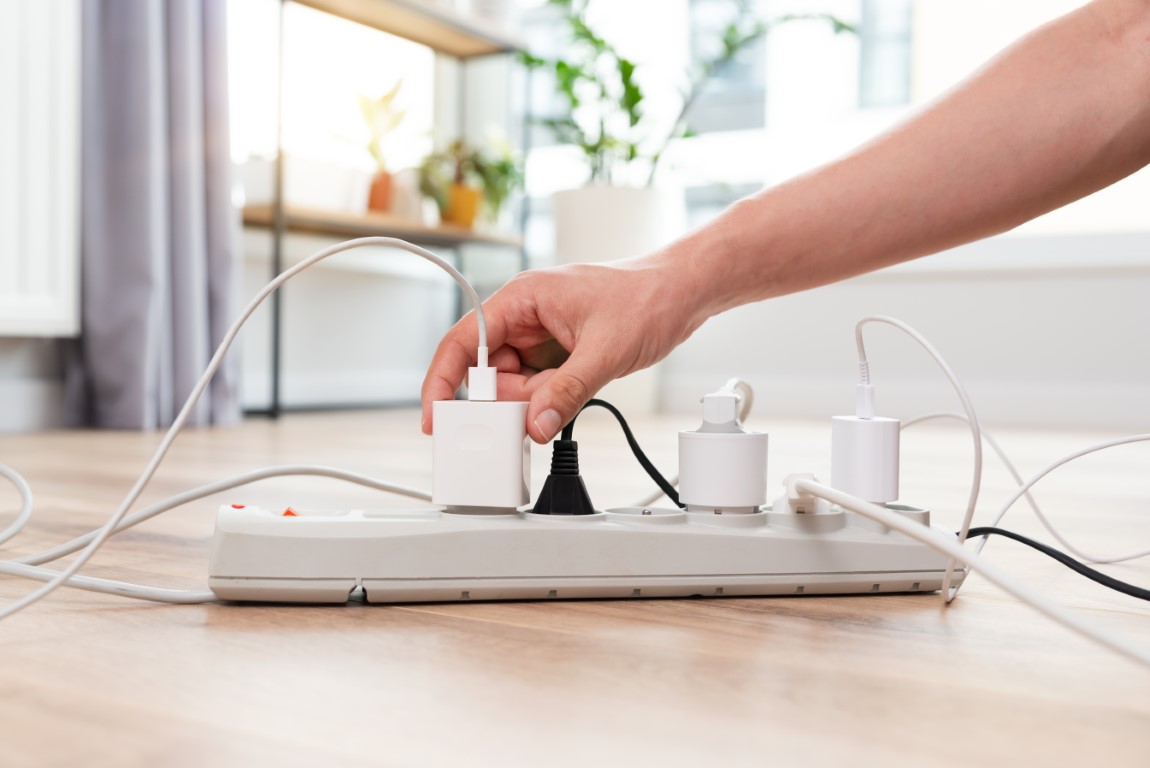May is National Electrical Safety Month, a time to raise awareness about the importance of electrical safety in our homes. Electrical hazards can pose serious risks to both property and personal safety, but with proper precautions, many accidents can be prevented. In this blog post, we’ll discuss some essential tips for protecting your home from electrical hazards.
Schedule an Electrical Inspection:
Regular electrical inspections by a licensed electrician are essential for identifying potential hazards and ensuring that your home’s electrical system is up to code. Consider scheduling an inspection if your home is older, if you’ve recently purchased the property, or if you’ve experienced electrical issues such as flickering lights or tripped breakers.
Install Ground Fault Circuit Interrupters (GFCIs):
GFCIs are electrical outlets equipped with built-in sensors that detect ground faults and quickly shut off power to prevent electrical shocks. Install GFCIs in areas where water is present, such as kitchens, bathrooms, laundry rooms, and outdoor outlets. Test GFCIs monthly to ensure they are functioning correctly.
Avoid Overloading Outlets:
Overloading electrical outlets with too many appliances or devices can lead to overheating, electrical fires, and damage to your home’s wiring. Use power strips equipped with surge protectors to safely connect multiple devices to a single outlet, and never plug one power strip into another.
Replace Damaged Cords and Outlets:
Inspect electrical cords and outlets regularly for signs of wear, damage, or fraying. Replace any damaged cords or outlets immediately to prevent electrical shocks and fires. Avoid running cords under rugs or furniture, as this can cause overheating and create a fire hazard.
Practice Safe Appliance Use:
Follow manufacturer guidelines for proper use and maintenance of appliances, including regular cleaning and inspection. Unplug appliances when not in use, and never operate them near water sources. Be cautious when using extension cords, and never use them as permanent wiring solutions.
Use Tamper-Resistant Outlets:
Consider replacing standard electrical outlets with tamper-resistant outlets, which feature built-in safety shutters that prevent children from inserting foreign objects. Tamper-resistant outlets are an effective way to protect young children from electrical shocks and burns.
By following these tips and prioritizing electrical safety in your home, you can reduce the risk of electrical hazards and create a safer living environment for you and your family. Remember that prevention is key when it comes to electrical safety, so take proactive measures to protect your home and loved ones from potential dangers.




